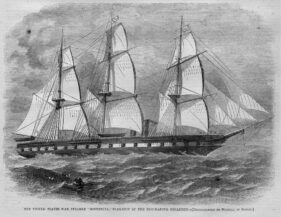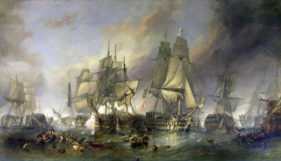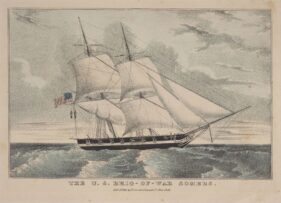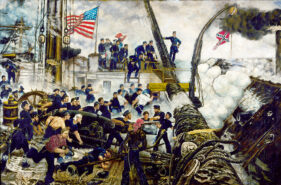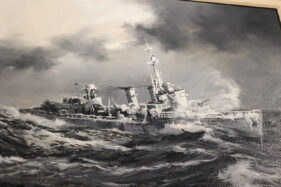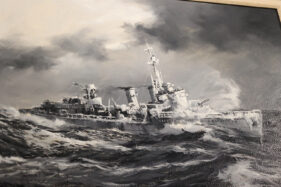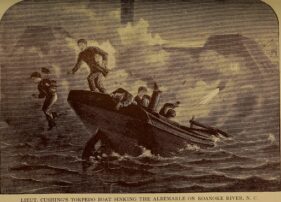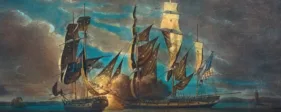Tag: Military Conflict
-
Union Wooden Fleet in Hampton Roads (March 7, 1862)
Friday, March 3, 2023 12:00 PM to 1:00 PM
Join us for a lecture with author and historian John V. Quarstein, director emeritus of the USS Monitor Center. Quarstein will give a presentation on the day’s event as the Union Wooden Fleet prepared to face off against the Confederate ironclad Merrimack on March 7, 1862.
-
USS Monitor Condenser Tank Removal
Watch our team remove USS Monitor's condenser tank to make more room in our Batten Conservation Complex!
-
Evolution of Naval Ordnance
Friday, November 18, 2022 12:00 PM to 1:00 PM
Hear from historian John V. Quarstein when he presents on how the advancement of naval armament in the 19th century revolutionized the way ships were built.
-
BEYOND THE FRAME: The Color of War
In this episode of Beyond the Frame, we turn an eye to the past and to the present, examining the symbolic effects of war in this somber World War II painting by famous British maritime artist, Montague Dawson.
-
Beware, Torpedo Boats!
Friday, October 14, 2022 12:00 PM
John V. Quarstein will share proof of the power of iron over wood, and how the Civil War introduced another lasting change to naval warfare - the power of torpedoes.
-
War of the Pacific: The Naval War
Friday, September 30, 2022 12:00 PM
Hear from historian John V. Quarstein when he tells of the Naval War of the Pacific and the Chilean ironclad Huȧscar.
-
Rebels at Sea
Thursday, September 22, 2022 7:00 PM
